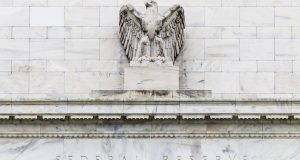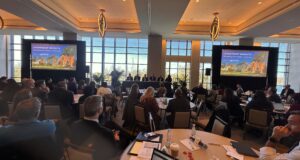At the recent conference held by the ""Federal Reserve Bank of Chicago"":http://www.chicagofed.org/webpages/index.cfm, implementation issues surrounding the Dodd-Frank Act were prominent, with Wayne Abernathy, executive vice president of the ""American Bankers Association"":American Bankers Association, telling attendees that numerous delays in deploying the provisions of the bill are likely to continue.
[IMAGE]Citing a recent study by Davis Polk, Abernathy stated that regulators have already extended 30 out of 30 deadlines for implementation on items including quantitative risk management, risk-retention rules, government sponsored entity dissolution, and loan officer compensation.
He also pointed out that, though ""U.S. Treasury Secretary"":http://www.treasury.gov/Pages/default.aspx Tim Geitner has indicated that prompt implementation is a key goal for the legislation, the additional objectives of the act ├â┬ó├óÔÇÜ┬¼├óÔé¼┼ô rigorous cost-benefit analysis and an avoidance of repetitious regulations ├â┬ó├óÔÇÜ┬¼├óÔé¼┼ô could be jeopardized by pushing the bill along too quickly.
Abernathy was clear about his take on implementation, saying, ""Speed is not the most important thing. If speed is the main focus, it could do more harm than good.""
[COLUMN_BREAK]Bankers at the conference expressed concern over the pace of implementation, with many saying they feared that a lengthy timeline could stymie innovation as lenders adopt a wait-and-see approach to new products and services while they try to evaluate the literal impact Dodd-Frank might have on their business. However, the bankers also have concerns regarding a speedy implementation, since the proposed rules require many changes to their operating procedures.
Legislators also stated a desire for more information on the potential effects of the bill, and during the first week of May, 19 Republican Senators asked the Inspectors General of the ""Federal Reserve Board"":http://www.federalreserve.gov/, the ""FDIC"":http://www.fdic.gov/, the Treasury Department, the ""Securities and Exchange Commission"":http://www.sec.gov/ (SEC), and the ""Commodity Futures Trading Commission"":http://www.cftc.gov/ to ""initiate a review of the economic analysis"" of several regulations proposed under Dodd-Frank.
""Our request arises from our concern that regulatory agencies are conducting rulemakings to implement Dodd-Frank without adequately considering the costs and benefits of their rules and the effects those rules could have on the economy,"" the Senators wrote in a letter, which asked for a response regarding 21 Dodd-Frank rules by June 13.
The Senate Banking Committee scheduled a hearing this week to discuss systemic risk and financial stability provisions of the Dodd-Frank Act, and of the items up for consideration, Abernathy said he has particular concern over the proposal to consolidate regulators in order to expedite implementation. He stated that the diverse types of financial institutions set to sustain changes due to Dodd-Frank makes it unreasonable to change the regulatory structure.
Listing the various entities, including community and regional banks, money centers, wholesale banks, major retail and international banks, federal mutual savings organizations, state-chartered mutual savings banks, and many more, Abernathy made it clear that the ultimate impact on borrowers utilizing the institutions is far too important to consider limiting the regulators examining the act.

 theMReport.com Your trusted source for mortgage banking news
theMReport.com Your trusted source for mortgage banking news









